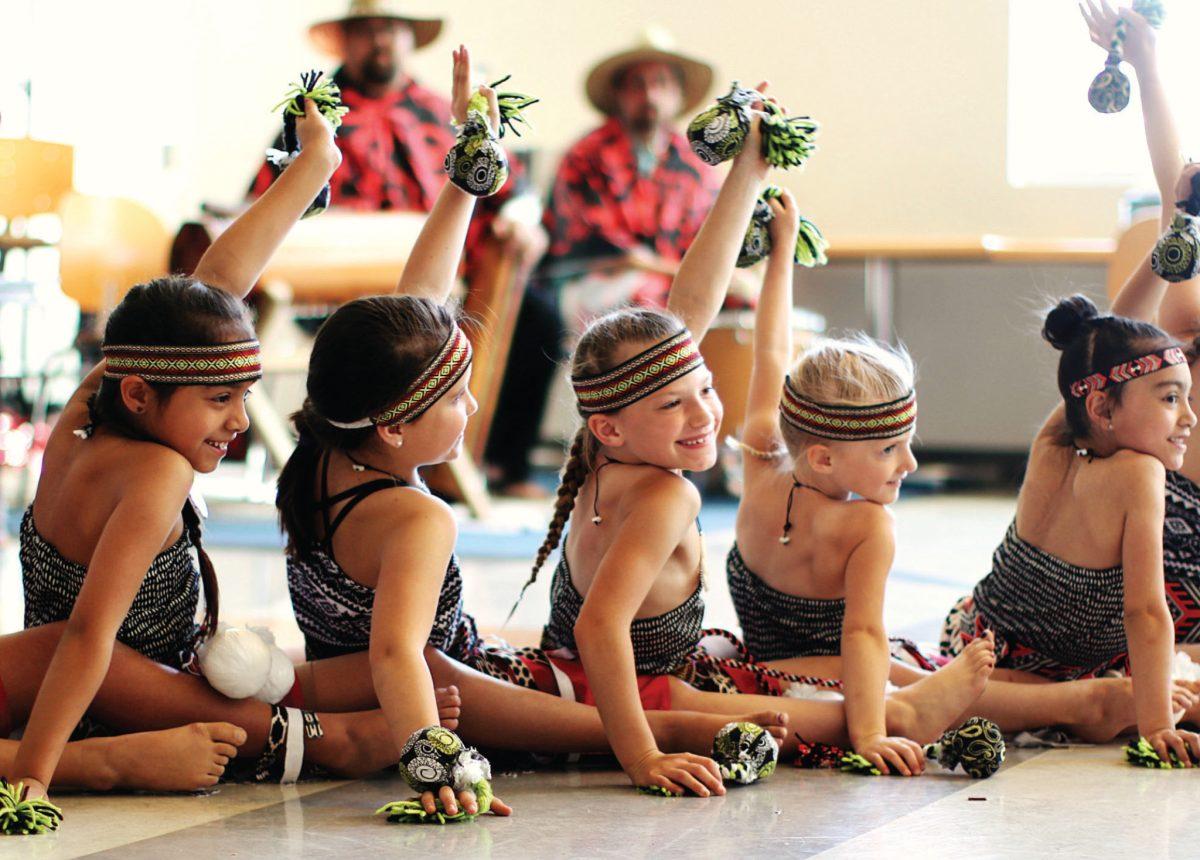By Katya Agatucci | The Broadside (Contact: [email protected])
Traditional dancing, Chinese calligraphy, tea tasting, origami, and many other festivities took place during the 14th annual Asian-Pacific Islander Festival.

Live performances narrated the story of the first automobiles in Hawaii, the time of ancient Hawaii, and the story of the hero Mauri. Performers included the Uhane Hawaii’s hula group based out of Redmond, Filipino dancers, and a martial arts demonstration.
A taste of Vietnamese, Chinese, Japanese, and Hawaiian cuisine was provided by Pho Viet & Cafe, Red Dragon, Bend-O Bento, and Big Island Kona Mix Plate. Stands featuring traditional Asian-Pacific Islander activities were available for attendees to partake in, as well as stands from local businesses like Wabi Sabi.

During the performances, dance instructor Rosemary Miller explained each dance to the audience as they were being performed.
There were several dances that were of Hawaiian descent. “The one thing about hula, there was a time when only men were allowed to dance. Women have maybe been dancing for the past hundred years. Anyone can do the hula; you can be two years old, you can be 102. My uncle was deaf, you can be blind. The hula is a beautiful way of storytelling and it’s a dance that we can dance and share and enjoy it with you,” Miller said.
There were performers ranging in age, skill and experience at the festival. Miller explained to the audience that out of the younger performers, there was a young male performer who had only been dancing for three weeks right next to her grandson, who had been dancing since the age of one and a half.
One of the last performances was a Maori Poi Ball Dance, where performers rhythmically perform with balls attached to strings. It is a dance native to the Maori people of New Zealand to increase their flexibility and strength.

“It takes years to learn how to do long poi ball. I come from from a dancing family and my brother can do six poi balls, two in each hand and two in each foot. He can also do poi balls lit on fire,” Miller said.
The celebration of Pacific-Rim cultures at Central Oregon Community College was free and open to the public, and students and faculty were encouraged to come and participate and celebrate the different cultures. ■








